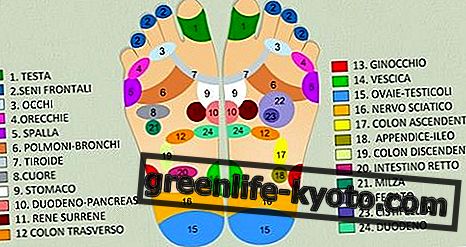
Magnesium (Mg) is the element of vitality, youth and harmony.
The correct and constant supply of Magnesium favors the general well-being through the balance and recovery of psycho-physical energy. Magnesium supplementation is essential, essential to activate the most important biochemical processes in our body, including digestion, relaxation from tension, energy production and the correct metabolism of nutrients in our diet.
It presides over more than 300 primary different enzymatic reactions, helps to rebalance our body in a harmonious natural way, increasing the sense of general well - being and restoring vitality and good humor!
Helps maintain the full activity and elasticity of all cells (including those of the epidermis), contributing significantly to give a pleasant sense of renewed freshness even to our most "visible" points, such as the skin of the face, neck, etc ..., thanks also to the activity of those enzymes responsible for cleaning the waste and toxins present in the cells of our body.
Magnesium is defined as the element of distension, because it reduces tensions, stiffness, blocks; therefore, it allows us to recreate those harmonious fluidity conditions that are essential for the general good functioning of the whole organism.
Also the processes of remineralization of bones and teeth, of nails and hair, as well as a regularization of the transmission of nerve impulses, would be unlikely without Mg, given that its contribution is fundamental for the correct and balanced assimilation of many other minerals, in particular of calcium (Ca).
Mg can be suitably defined as "bio-regulator of daily well-being".
Magnesium in nature
Mg is present in numerous foods such as cocoa, chocolate, oily nuts such as nuts, almonds, seafood (traces), legumes, fresh green leafy vegetables and unrefined grains.
But it is good to know that food refining, cooking and the handling of industrial foods make modern food almost completely devoid of this irreplaceable nutrient. Food cooking, in particular, can reduce the content well over 75%.
Why supplement with magnesium?
Because there are many aspects of our lifestyle that cause a worrying lack of it.
As mentioned, modern nutrition, mainly consisting of pre-cooked, handled and prepared foods for ever faster consumption, drastically reduces the intake of Mg and many other fundamental nutrients. But even the very imbalance of our diets, often conditioned by the excessive caloric intake of certain foods, can become a cause of deficiency: for example, a diet too rich in refined sugars, carbohydrates or fats (especially if animal fats) weighs down the our digestive system that must resort to massive doses of Mg taking them from other areas of the body in order to digest and metabolize the hyper-caloric content of our diet. This is the first cause of imbalance and magnesium deficiency. Furthermore, even a diet too rich in calcium (milk, cheese, ...) can cause nutritional imbalance, increasing the body's need for Mg.
In general, nutrition is the "spy" of our lifestyle, so it is very common for people responsible for poor nutrition to also be victims of an unbalanced lifestyle. Not only, however, for its own causes. For example, stress, hectic life, increasingly compressed times force us to live our daily lives like an endless handicap race. And unfortunately the stress, or the excessive psycho-physical fatigue, are ascertained generators of pathologies, sometimes very serious ones.
Excesses of alcohol, drugs (especially diuretics), smoking, unfavorable environmental conditions, air pollution and groundwater are all factors that expose us to more or less serious risks, to which we must add the capacity for different organic reactions from person to person.
The body, in the face of these risk factors, tries to exploit all its resources; this is why trying to modify our lifestyle, our food habit, integrating it also with adequate supports, can and must be our first step towards wellness.
Mg is considered one of the primary elements for the recovery of functional balance, so its right contribution can prove indispensable for achieving full well-being.
Possible symptoms of magnesium deficiency
Our body transmits very clear signals through which we ourselves - or even better through a diagnosis performed by the doctor - can recognize when it is advisable to intervene by means of an appropriate integration of magnesium.
Research and medical and phytotherapeutic literature show us that among the most frequent symptoms of Mg deficiency there could be:
- Nervousness, restlessness, stress, anxiety
- Neuro-muscular tremors, nervous tics
- Insomnia, difficulty falling asleep, restless sleep
- Weakness and fatigue on waking, fatigue, chronic fatigue
- Cramps and muscle spasms (even at night)
- Heart rhythm irregularity
- Premenstrual syndrome
- Migraines and joint pains
- Osteoporosis and bone fragility
- Constipation
- Nausea, stomach acid
- Gastritis and digestive reflux
Magnesium supplementation: the benefits
Thanks to the impressive number of biochemical reactions in which magnesium is involved, there are many areas of our body that can benefit from its regular consumption. It can assist the body in improving or maintaining the correct heart rate, also helping to regularize any blood pressure deficits; it is useful in cases of hyperglycemia, because in this case there is less absorption and greater dispersion of the nutrient; it can improve mood and help raise the level of general well-being, reducing anxiety and irritability.
Furthermore, the Mg can be useful in the following cases:
- Recovery of balance and psycho-physical energy
- Regulation of digestive processes
- Energy production
- Physiological restoration against oxidative stresses
- Relaxation and muscle relaxation
- Correct absorption of calcium
- Stress recovery and surmenage
- Adjuvant of the body to reduce anxiety
The relationship between calcium and magnesium
A decidedly important aspect is the correct ratio between calcium and magnesium. In fact, the balance between them is decisive for a regular functioning of the muscles. Even the heart, like any other muscle, works thanks to the cyclic alternation between tension and relaxation: in fact, while the Ca has the property of stretching the muscle, the Mg relaxes it.
Therefore, the balanced integration of magnesium can assist the regularization of the cardiac rhythm, the maintenance of the correct phases of contraction and distension, contributing in this way also to the restoration of blood pressure.
In bone structure, calcium is not able to be completely assimilated without the right support of magnesium, in the absence of which painful phenomena can arise in bones and joints, obvious assumptions of a greater fragility, which could cause an increased risk of fractures.
The benefits of magnesium, in fact, can be indicated for all those suffering from osteoporosis.
The Mg prevents the dispersion (but also the accumulations) of the Ca, directing it correctly in the whole of our body.
In fact, it gradually dissolves any deposits of Ca present in the body and a regular intake avoids the formation (or re-formation).













